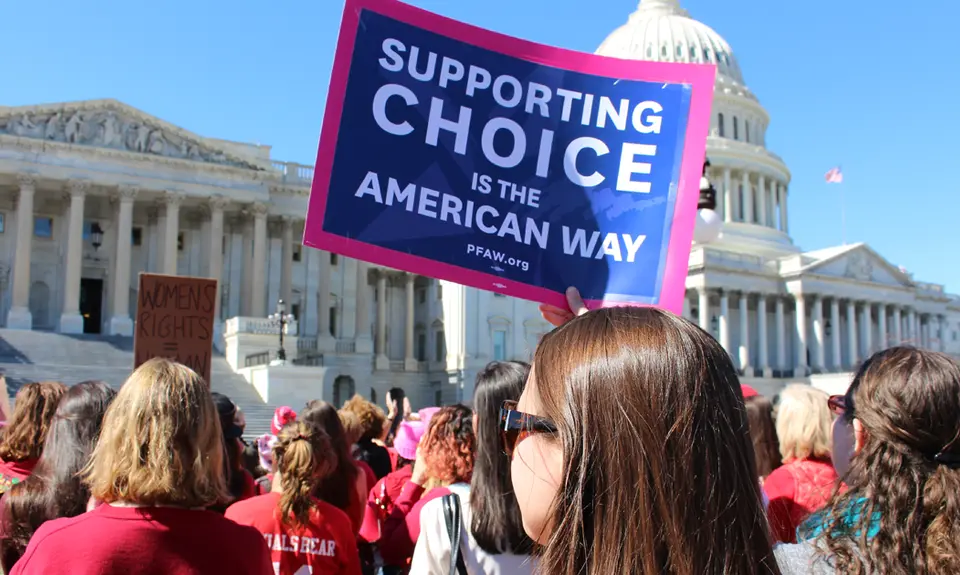“Confirmed Judges, Confirmed Fears” is a blog series documenting the harmful impact of President Trump’s judges on Americans’ rights and liberties. Cases in the series can be found by issue and by judge at this link.
Exactly as Trump Sixth Circuit judge Amul Thapar advocated, at least half of the six Trump judges on the full Sixth Circuit –including Thapar, John Bush, Joan Larsen, John Nalbandian, Chad Readler, and Eric Murphy – cast the deciding votes in an unsigned order that vacated a panel decision and allowed a restrictive Tennessee abortion law to continue in effect while the court considers an appeal of a district court decision that struck it down. The latest April 2021 ruling in the case is at Bristol Regional Women’s Center v Slatery.
As explained in an earlier blog entry, a district judge nominated by President Ronald Reagan conducted a four-day trial and issued a comprehensive 135+-page opinion that struck down a Tennessee law that imposed a 48-hour waiting period and other restrictions on women seeking an abortion, in violation of Supreme Court precedent. When the state tried to stop the decision from taking effect during the appeal, a Sixth Circuit panel issued a 2-1 decision, with Judges Karen Nelson Moore and George W Bush nominee Helene White in the majority, which denied the stay in February 2021. Trump judge Thapar harshly dissented, and argued that the decision should be reversed immediately, either by the Supreme Court or by the full court of appeals.
The state chose the latter course and earlier in April, the full court took the “extraordinarily disfavored” step of granting the state’s motion to take the appeal directly, without a substantive decision by the three-judge panel. The state then asked the full court to vacate the previous panel order denying a stay and to grant one itself, so that the harmful Tennessee law would remain in effect during the appeal.
Completing Thapar’s agenda, the full Sixth Circuit in fact granted the state’s motion, vacated the panel decision, and stopped the district court’s decision striking down the restrictive law from taking effect while the appeal is pending. The order was unsigned and issued with no opinion or explanation. Six of the court’s 16 judges vigorously dissented, which means that if all four of the remaining non-Trump judges on the court agreed with the decision, at least three of the six Trump judges on the court must have cast deciding votes to comprise at least a seven-judge majority to grant the stay.
Judges Moore, White, and three other judges dissented for the same reasons given by the original panel in denying the stay. Judge Julia Smith Gibbon, who was nominated by President George W Bush, also dissented. In addition to expressing concern about the initial order by the full court to review the case directly, which she noted was “unnecessary and damaged our traditional system of panel review,” Judge Gibbons explained that the state had not met its heavy burden to make a “strong showing” that it was likely to succeed on the merits. She specifically criticized Thapar’s panel dissent and the state argument that all “waiting periods are constitutional” after the Supreme Court’s Casey decision, writing that it “defies precedent” to “summarily conclude” that they are.
Judge Gibbons acknowledged that “I do not yet know” whether the district court decision striking down the Tennessee law was correct, and that it will properly require the court to “pore through the extensive record, analyze the merits briefs, and hear the parties’ arguments” to decide. At this preliminary stage, she continued, it was clear that the state “has not” met its burden to prove that it is “likely to succeed on the merits”, and so the stay should have been denied.
Judge Gibbons’ words echo Judge Moore’s earlier concern that on the Sixth Circuit, now including 6 Trump judges, there may well be a majority of judges who “will always side” with abortion restrictions and will “upend standard practice to do so.” Although there are currently no vacancies on the Sixth Circuit, there can be little question that other Trump judges will act similarly, making it even more important that President Biden and the Senate promptly fill all current and future vacancies on our courts with fair-minded judges with a demonstrated commitment to justice, fundamental rights, and equality for all.
